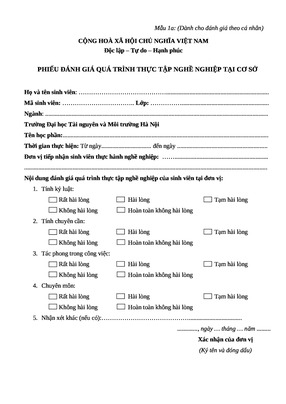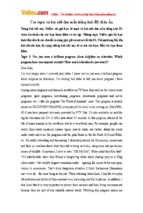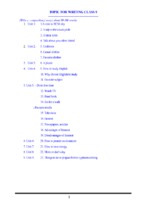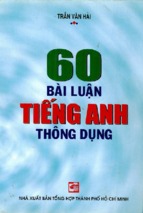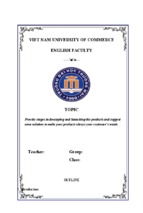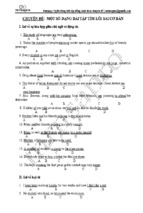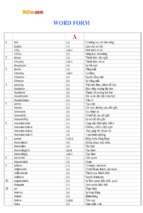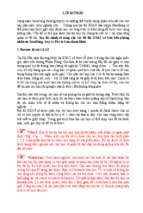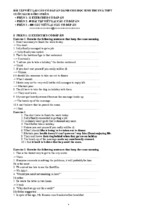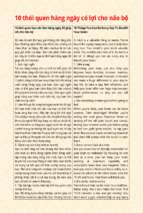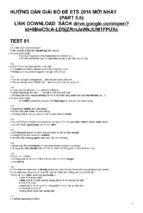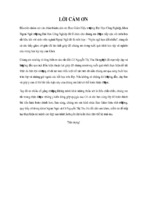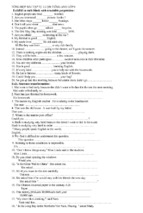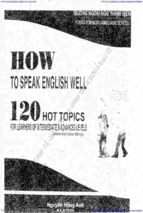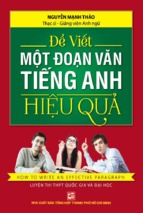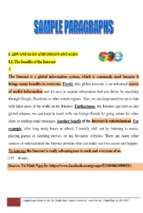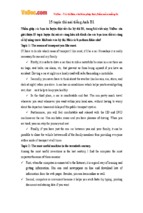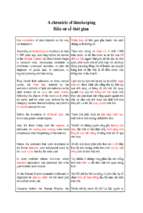qwertyuiopasdfghjklzxcvbnmqwertyui
opasdfghjklzxcvbnmqwertyuiopasdfgh
jklzxcvbnmqwertyuiopasdfghjklzxcvb
nmqwertyuiopasdfghjklzxcvbnmqwer
Perfect Your Sentences
120 Grammar and Vocabulary Mistakes to Avoid
tyuiopasdfghjklzxcvbnmqwertyuiopas
dfghjklzxcvbnmqwertyuiopasdfghjklzx
cvbnmqwertyuiopasdfghjklzxcvbnmq
wertyuiopasdfghjklzxcvbnmqwertyuio
pasdfghjklzxcvbnmqwertyuiopasdfghj
klzxcvbnmqwertyuiopasdfghjklzxcvbn
mqwertyuiopasdfghjklzxcvbnmqwerty
uiopasdfghjklzxcvbnmqwertyuiopasdf
ghjklzxcvbnmqwertyuiopasdfghjklzxc
vbnmqwertyuiopasdfghjklzxcvbnmrty
uiopasdfghjklzxcvbnmqwertyuiopasdf
ghjklzxcvbnmqwertyuiopasdfghjklzxc
Last Updated: October 24, 2010
www.EnglishGrammar.org
The purpose of this book
English is full of problems for a foreign learner. While some of these problem points
are easy to explain, others cause difficulty even for the advanced students and
learners. For example, how exactly is the present perfect tense used? What are the
differences between big, large and great, between come and go? Is unless the
same as if not?
This eBook is a guide to questions of this kind. It addresses 120 points which
regularly cause problems for the foreign learner. Rules and guidelines are given,
using as little linguistic terminology as possible.
Who will benefit from this book?
This book is aimed at students who wish to improve the quality of their sentences.
It is compiled for the use at school or at home.
How to use this book?
Entries are arranged alphabetically. Each entry contains an explanation of a
problem, examples of correct usage and typical mistakes. Explanations are, as far
as possible, given in simple everyday language.
List of Entries
1. According to
2. Across and through
3. Adjectives ending in -ly
4. Ago and before
5. All and every
6. All right and alright
7. Already and all ready
Perfect Your Sentences
Page 2
8. Alternate and alternative
9. Altogether and all together
10. Any and some
11. Anyhow and somehow
12. Articles
13. Article a – correct use
14. Ask and ask for
15. At first and first
16. Avenge and revenge
17. Back and again
18. Bath and bathe
19. Beat and win
20. Because
21. Because and because of
22. Because and for
23. Begin and start
24. Beside and besides
25. Besides, except and apart from
26. Between and among
27. Between and during
28. Between and from
29. Big, large and great
30. Born and borne
31. Bring and take
32. But
Perfect Your Sentences
Page 3
33. Change of tense
34. Close and shut
35. Cloth and clothes
36. Collective nouns
37. Come and go
38. Common preposition + noun combinations
39. Comparatives and superlatives
40. Comparatives: a common error
41. Conjunctions
42. Correlatives
43. Dead and died
44. Determiners
45. Do and make
46. Double negatives
47. During and for
48. Each and every
49. Each other and one another
50. East, eastern, north, northern etc.
51. Elder and eldest
52. End and finish
53. Enough
54. Especially and specially
55. Except and except for
56. Expect and hope
57. Expressions without prepositions
Perfect Your Sentences
Page 4
58. Far and a long way
59. Gerund
60. Historic present
61. I don't mind
62. If clauses
63. Imperative sentences
64. Indirect questions
65. Invent and discover
66. Inversion of subject and verb
67. Its and it’s
68. Joining sentences
69. Keep and put
70. Kind and kinds, sort and sorts etc.
71. Less and fewer
72. Lie and Lay
73. Like and as
74. Look after and look for
75. Lose and loose
76. Many/much and plenty of/a lot of
77. May and can
78. Maybe and perhaps
79. Much and many
80. Neither, nor and not...either
81. Nominative and objective case
82. No sooner ...than
Perfect Your Sentences
Page 5
83. Nouns that do not have a singular form
84. Nouns with no plural forms
85. Nouns with identical singular and plural forms
86. Numbers
87. On and in
88. Only
89. On time and in time
90. On the whole and the whole of
91. Participles
92. Positive or comparative?
93. Past perfect tense
94. Possessive case
95. Prepositions
96. Present perfect tense
97. Price and Prize
98. Pronouns
99. Say and tell
100. Scarcely...when
101. Search and search for
102. Sincerely
103. Singular and plural nouns
104. Subordinate clause
105. Suggest
106. Than and as
107. Thank you and please
Perfect Your Sentences
Page 6
108. Told and asked
109. Too and very
110. Transitive verbs
111. Two words or one
112. Unless and if
113. Verbs
114. -ward and –wards
115. Well and Good
116. Why not + infinitive
117. Whether and If
118. Whose and who’s
119. Will or shall?
120. Yes and No
1. According to
•
•
Incorrect: According to me, she should have resigned earlier.
Correct: In my opinion, she should have resigned earlier.
We do not give our own opinions with according to.
2. Across and through
The difference between across and through is similar to the difference between
on and in. We use through to talk about movement in three dimensional spaces
with things on all sides.
•
We walked across the field. (= We were on the field.)
Perfect Your Sentences
Page 7
•
We walked through the wood. (= We were in the wood.)
3. Adjectives ending in -ly
•
•
•
•
Incorrect: She smiled friendly.
Correct: She smiled in a friendly way.
Incorrect: He laughed silly.
Correct: He gave a silly laugh
Here the error lies in using an adjective instead of an adverb. We use adverbs to
modify verbs. Most adverbs end in –ly; there are also a few adjectives that end in –
ly. Examples are: costly, friendly, lively, likely, lonely, lovely, silly and ugly. There
are no adverbs costly/costlily or friendly/friendlily.
4. Ago and before
•
•
Incorrect: His father died three years before.
Correct: His father died three years ago.
Ago is used to count back from the present. It is used with a past tense and a time
expression. Before is used when you date back from any point of time which is
made specific.
•
I saw him two years before I went to England.
5. All and every
•
•
•
•
Incorrect: Every children need love.
Correct: Every child needs love.
Incorrect: All the light was out.
Correct: All the lights were out.
Every is used with a singular noun. All is used with a plural noun.
6. All right and alright
Perfect Your Sentences
Page 8
The standard spelling is all right, but alright is more common although many
people consider it incorrect.
7. Already and all ready
•
•
•
•
Incorrect: We are already for the show.
Correct: We are all ready for the show.
Incorrect: They have all ready arrived.
Correct: They have already arrived.
All ready means ‘all are ready’. Already means 'by now' or 'sooner than
expected'.
•
•
The train had already left before we reached the station.
The patient had already died before the doctor arrived.
8. Alternate and alternative
Alternative means 'different', 'instead', 'on the other hand'.
•
•
We will make an alternative arrangement if these plans don't suit you.
I had to go. There was no alternative.
Alternate means 'every second' or 'in turns'.
He only comes to work on alternate days.
9. Altogether and all together
Altogether means ‘entirely’ or ‘everything considered’.
•
•
I don’t altogether agree.
It is altogether wrong to ill-treat animals.
All together simply means ‘everybody / everything together’.
•
•
They all went out together.
She put the glasses all together in the sink.
Perfect Your Sentences
Page 9
10. Any and some
Both some and any suggest an indefinite amount or number. Some is more
common in affirmative clauses. Any is used in questions and negative clauses.
Compare:
•
•
•
I need some pencils. (NOT I need any pencils.)
Have you got any pencils?
Sorry, I haven't got any pencils.
11. Anyhow and somehow
•
•
•
•
•
•
Incorrect: He did it anyhow.
Correct: He managed to do it somehow.
Incorrect: He keeps his things somehow in his desk.
Correct: He keeps his things anyhow in his desk. (= He doesn’t keep his
things in order.)
Incorrect: He may not come but somehow I shall.
Correct: He may not come but anyhow I shall. (= I will certainly come.)
Use 'anyhow' to mean 'in disorder'. ‘Anyhow’ can also mean 'for certain'.
12. Articles
The misuse of the and a is very common. Here are the basic rules for the use and
omission of articles.
Proper nouns (e.g. John, Alice and India) do not take articles.
•
•
•
•
Incorrect: The John is my friend.
Correct: John is my friend.
Incorrect: The Tokyo is a big city.
Correct: Tokyo is a big city.
A singular common noun (e.g. boy, cat, tree, book, apple etc.) must have an
article.
Perfect Your Sentences
Page 10
•
•
Incorrect: There is cat on roof.
Correct: There is a cat on the roof.
A plural common noun cannot be used with the article a. It is usually used with
no article, though 'some' is sometimes used before it.
Compare:
•
•
A spider has eight legs.
Spiders have eight legs.
Remember that a noun can be common in one sentence and proper in another
sentence.
A superlative adjective is usually used with the.
•
•
Incorrect: He is best player in the team.
Correct: He is the best player in the team.
13. Article a – correct use
The article 'a' placed in front of a noun conveys the idea of 'one'. When writing
about two separate objects, a second 'a' must be used. If the two objects are
considered as one, then the second 'a' may be left out.
•
•
•
•
•
•
Incorrect: I have a hammer and chisel.
Correct: I have a hammer and a chisel. (Here we are talking about two
separate objects.)
Incorrect: She has a son and daughter.
Correct: She has a son and a daughter.
Incorrect: The mechanic used a block and a tackle to lift the machine.
Correct: The mechanic used a block and tackle to lift the machine. (Here
we are talking about one object.)
14. Ask and ask for
Ask for: ask somebody to give something
Ask: ask somebody to tell something
•
He asked me for a loan. (NOT He asked me a loan.)
Perfect Your Sentences
Page 11
•
•
•
They asked ten dollars for the book.
If you don't know the answer, ask the teacher.
Don't ask me my name. (NOT Don’t ask me for my name)
15. At first and first
At first is used to talk about the beginning of a situation. It is often followed by
but. In other cases, we usually use first.
•
•
At first everything seemed fine, but then things started going wrong.
I first met her at a restaurant.
16. Avenge and revenge
•
•
•
•
Incorrect: I must revenge my father.
Correct: I must avenge my father.
Incorrect: I must revenge my enemy.
Correct: I must take revenge on my enemy.
These two words are often confused. To 'avenge my father' means to ‘punish
someone who has hurt my father’.
17. Back and again
When used with a verb, back suggests a return to an earlier situation or a
movement in the opposite direction.
•
•
•
•
Give me my watch back. (NOT Give me my watch again.)
Take your money back.
Put the book back on the shelf when you have finished with it.
These mangoes aren't good. I am taking them back to the shop.
When used with a verb, again suggests repetition.
•
•
I did not hear what you said. Please say it again.
That was a lovely song. Can you play it again?
18. Bath and bathe
Perfect Your Sentences
Page 12
In British English, the verb bath is used to mean 'wash oneself in a bath tub'.
•
Children should bath regularly.
The verb bath is not used in American English. Instead, the expressions 'have a
bath' or 'take a bath' are used.
•
As I was feeling hot, I took a bath.
In British English, bathe means 'swim for pleasure'. It is very formal. In an
informal style, we use the expressions 'have a swim' or 'go for a swim'.
•
He said he had a good bathe.
In American English, bathe is used to mean 'take a bath'.
•
I always bathe before I go to bed. (= I always take a bath before I go to
bed.)
Note that to lie in the sun is to sunbathe.
19. Beat and win
Beat is usually followed by an object which refers to the person you are playing or
fighting against.
•
She always beats me at poker.
Win can also be followed by an object, but it usually refers to things like money or
prize. You can also win in a game, a race, a battle or an argument.
•
•
She won the first prize in the quiz competition.
She always wins when we play poker.
20. Because
•
•
Incorrect: He did not come to school. Because he was ill.
Correct: He did not come to school because he was ill.
This is a very common punctuation mistake. Because is a subordinating
conjunction. It must not be separated from its main clause by a full stop.
Perfect Your Sentences
Page 13
21. Because and because of
Because is a conjunction. It is used to join two clauses and is followed by a subject
and verb.
•
•
We couldn’t go out because it rained.
I did it because he told me to do it.
Note that the ‘because clause’ can come before or after the main clause.
•
•
Because it was so hot, we went home.
We went home because it was so hot.
Because of is a two-word preposition. It is used before a noun or a pronoun.
•
•
We couldn’t go out because of the rain.
I did it because of him.
22. Because and for
•
•
Incorrect: I am glad for tomorrow is a holiday.
Correct: I am glad because tomorrow is a holiday.
For is hardly wrong, but it is better to use because to introduce a casual clause.
23. Begin and start
There is little or no difference between begin and start. Begin is more common in
a formal style.
•
•
•
He started / began working when he was 19.
We will begin / start the next lesson tomorrow.
It is time to begin / start work.
Cases where begin is not possible
We start (but not begin) a journey or a machine.
•
•
•
We started in the morning and reached before sunset. (NOT We began in
the morning...)
How do you start a washing machine? (NOT How do you begin a washing
machine?)
At last the train started. (NOT At last the train began.)
Perfect Your Sentences
Page 14
24. Beside and besides
Beside is a preposition. It means 'by' or 'next to'.
•
•
The mother sat beside her children.
Who is that fat lady sitting beside Peter?
Besides is similar to as well as. It is used to add new information to what is
already known.
•
•
Besides the violin, he can play the guitar and the piano.
Who was at the party besides Jane and Peter?
25. Besides, except and apart from
These expressions often cause confusion. Besides usually adds whereas except
subtracts.
Compare:
•
•
Besides mathematics, we have to learn physics and chemistry. (We learn
three subjects.)
He can play all musical instruments except the flute. (He can’t play the
flute.)
Apart from can be used in both senses.
•
•
Apart from mathematics, we have to learn physics and chemistry. (=
Besides mathematics, we have to ...)
He can play all musical instruments apart from the violin. (= He can play
all musical instruments except the violin.)
26. Between and among
We use between with two or more clearly separate people or things. We use
among when the reference is to a group, a crowd, or a mass of people or things
which we do not see separately.
•
•
She sat between Alice and Mary. (Two clearly separate people)
She sat among her students.
Perfect Your Sentences
Page 15
•
•
There is a tourist home between the woods, the river and the hills.
(Three clearly separate things)
The tourist home is hidden among the trees.
We use between, not among, after difference.
•
What is the main difference between a square and a rectangle?
27. Between and during
•
•
•
•
Incorrect: England grew prosperous between Queen Victoria's reign.
Correct: England grew prosperous during Queen Victoria's reign.
Incorrect: The First World War was fought during 1914 - 18.
Correct: The First World War was fought between 1914 - 18.
Two events must be mentioned if you want to use between.
28. Between and from
A common mistake that is often noticed these days is the use of to after between.
•
•
•
•
Incorrect: The interview will be held between 2 to 4pm.
Correct: The interview will be held between 2 and 4 pm.
Incorrect: The conference will take place between the 12th to the 18th of this
month.
Correct: The conference will take place between the 12th and the 18th of
this month.
Or else you can say:
•
•
The interview will be held from 2 to 4 pm.
The conference will take place from the 12th to the 18th of this month.
29. Big, large and great
We use big and large with concrete nouns - the names of objects which we can
see or touch. In an informal style, big is more common than large.
•
•
He has got big / large feet.
They have a large / big house in the city.
Perfect Your Sentences
Page 16
We use great with abstract nouns - the names of things which we cannot see or
touch.
•
•
I think it was a great mistake.
I have great respect for him.
In an informal style big is also used with countable abstract nouns. Large is not
used with abstract nouns.
•
I think it was a big mistake. (BUT NOT I think it was a large mistake.)
None of these three words are used with uncountable nouns.
•
I have got a lot of luggage. (NOT I have got big/large/great luggage.)
30. Born and borne
The passive form of the verb born (be + born) is used to talk about coming into
the world at birth.
•
•
•
He was born to poor parents.
I was born on a Friday.
She was born in Italy.
Borne is the past participle form of the verb bear. It is sometimes used to mean
'give birth to' or 'carry'.
•
She has borne eight children. (= She has given birth to eight children.)
31. Bring and take
•
•
•
•
•
•
Incorrect: I don't know what to bring when I leave for the conference.
Correct: I don't know what to take when I leave for the conference.
Incorrect: I shall bring my wife with me when I go.
Correct: I shall take my wife with me when I go.
Incorrect: Take that book to me at my desk.
Correct: Bring that book to me at my desk.
Use bring when something is being moved towards the speaker.
•
Bring me that book.
Use take when something is being moved away from the area of the speaker.
Perfect Your Sentences
Page 17
•
Take that file with you. (Here the file is being moved away from the area of
the speaker.)
32. But
•
•
Incorrect: He is the fastest runner and he came last.
Correct: He is the fastest runner but he came last.
But is the conjunction to use when the second main clause gives unexpected or
contradictory information.
33. Change of tense
The first verb in a sentence establishes the tense of any verb that comes later. If
you begin writing in the past, don’t change to the present. Similarly, if you begin
writing in the present, don’t change to the past.
•
•
•
•
Incorrect: In the story, the king loses his kingdom, but he regained
everything in the end.
Correct: In the story, the king loses his kingdom, but he regains everything
in the end.
Incorrect: The team won yesterday, but goes and loses this afternoon.
Correct: The team won yesterday, but went and lost this afternoon.
34. Close and shut
There is little difference of meaning between close and shut.
•
•
•
Shut/close your eyes.
Can you close/shut the door?
They close/shut the shops at 8 o'clock.
Cases where close is preferred
We close (and not shut) roads, letters, bank accounts, meetings etc.
•
You should close your existing account before opening a new account. (NOT
You should shut your existing account …)
Perfect Your Sentences
Page 18
35. Cloth and clothes
Cloth is the material used for making clothes. Clothes are things you wear.
•
His clothes are made of expensive cloth.
36. Collective nouns
Group words or collective nouns take a singular verb if you are talking of the
group as a whole. They take a plural verb if you are talking about the individual
members of the group.
Compare:
•
•
The jury is in the courtroom. (Here we are talking about the whole group.)
The jury are still debating the case. (Here we are talking about the
individual members of the group.)
Note: Collective nouns are always singular in American English.
37. Come and go
Come is used for movements to the place where the speaker or hearer is.
•
•
•
Come to me. (Movement towards the speaker)
'Alice, can you come here?' 'Yes, I am coming.' (NOT I am going.)
Can I come and sit beside you? (Movement towards the hearer)
Go is used for movements to other places.
•
•
Let's go and see them. (NOT Let's come and see them.)
I want to go and live in the hills. (NOT I want to come and live in the hills.)
38. Common preposition + noun combinations
•
•
•
•
•
At the cinema; at the theatre; at the party; at university
By car/bike/bus/train/boat/plane/land/sea/air
On the radio; on TV; on the phone
In pen/pencil/ink
In a suit/raincoat/shirt/skirt/hat etc
Perfect Your Sentences
Page 19
39. Comparatives and superlatives
The comparative (e.g. taller, sharper, stronger, heavier, shorter etc.) is used to
compare one person or thing with another person or thing.
•
•
John is taller than Peter.
Alice is cleverer than Mary.
The superlative (e.g. tallest, sharpest, strongest, heaviest, shortest etc.) is used
to compare somebody or something with the whole group to which she/he/it
belongs.
•
•
•
John is the tallest boy in the class.
Alice is the prettiest of the four girls.
He is the best player in the team.
When a group has only two members, we prefer the comparative to the superlative.
•
•
•
•
Incorrect: Take the shortest of the two routes.
Correct: Take the shorter of the two routes.
Incorrect: She is the prettiest of the two sisters.
Correct: She is the prettier of the two sisters.
40. Comparatives: a common error
In comparative sentences be careful to compare the same part of two things. That
of, these of and those of are necessary words that are often omitted.
•
•
•
•
•
•
Incorrect: His teaching was like Jesus Christ.
Correct: His teaching was like that of Jesus Christ.
Incorrect: The size of the shoe must be the same as this shoe.
Correct: The size of the shoe must be the same as that of this shoe.
Incorrect: My books are better than my friend.
Correct: My books are better than those of my friend.
41. Conjunctions
One conjunction is enough to join two clauses. English does not require a second
conjunction.
Perfect Your Sentences
Page 20
- Xem thêm -

